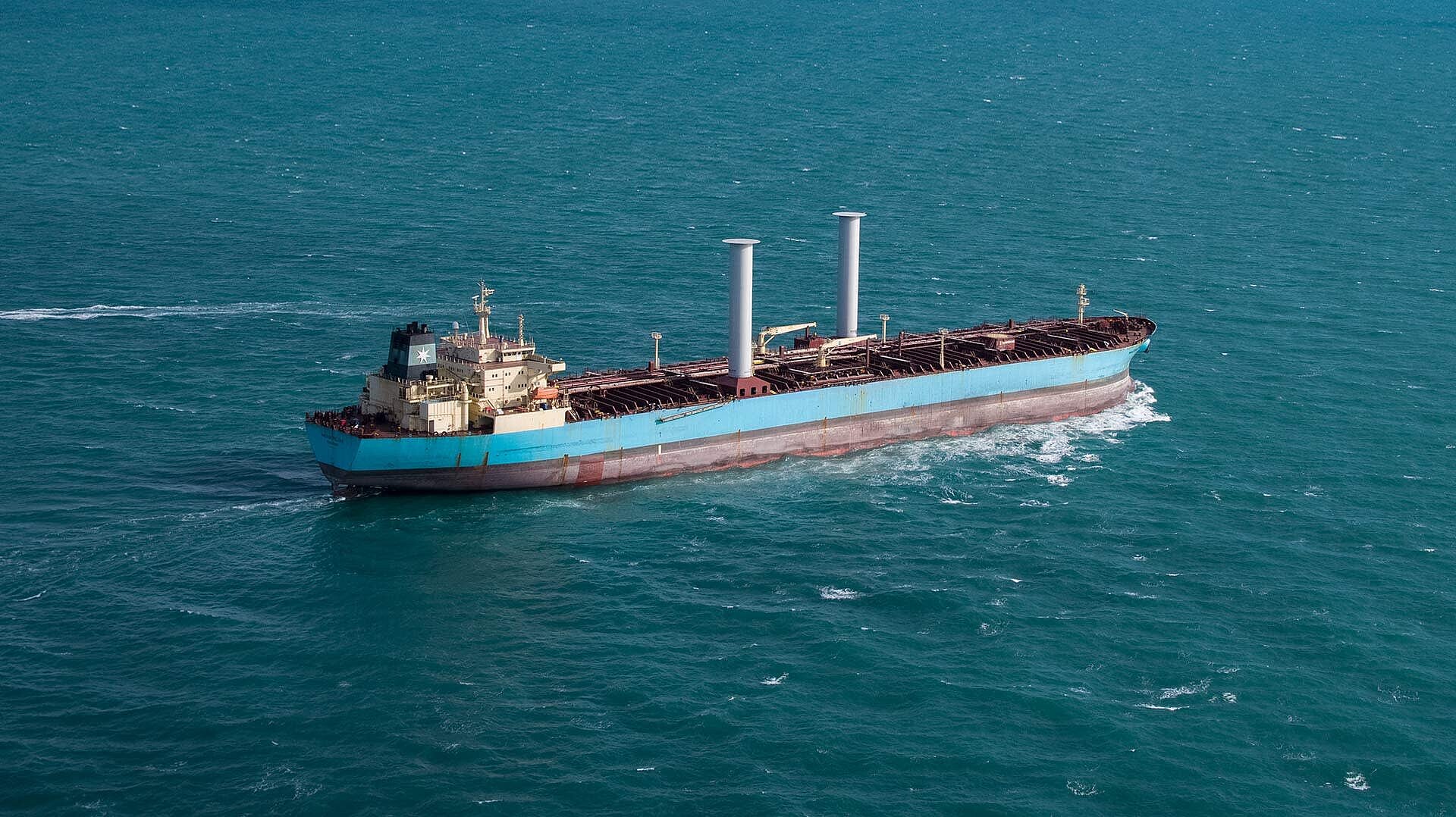
LR Webinar points path to profitable ship retrofits amid regulatory pressure

LR verified an 8.2% fuel saving on Maersk Pelican (Source: Norsepower)
Lloyd’s Register (LR) recently hosted a webinar outlining its structured approach to supporting shipowners through energy transition via effective retrofit strategies. With over 60 energy-saving technologies on the market, LR’s advisory model helps narrow options using a fuel-saving vs. capex curve, guiding owners to retrofit options with the best return on investment – sometimes identifying savings of up to USD 6.9 million annually.
The session highlighted four case studies covering retrofit business case development, feasibility analysis, execution planning, and post-installation validation. Results included a 15% fuel saving via rotor sail installation on the TR Lady and an 8.2% verified saving on Maersk Pelican through sea trials.
LR emphasised its "ship-as-a-system" approach, modelling energy flows and integrating economic, regulatory, and technical factors. Questions addressed regulatory compliance under IMO and FuelEU Maritime, including GFI penalties of up to USD 380 per tonne CO₂ from 2028. Wind-assisted propulsion qualifies for incentives, while carbon capture, though promising, faces practical and regulatory hurdles.
While some shipowners remain hesitant amid fuel uncertainty, LR suggests retrofits offer dual benefits – cost savings and regulatory compliance, positioning them as a smart interim strategy. The firm continues research into wind systems, carbon capture, and propulsion upgrades to support maritime decarbonisation.
